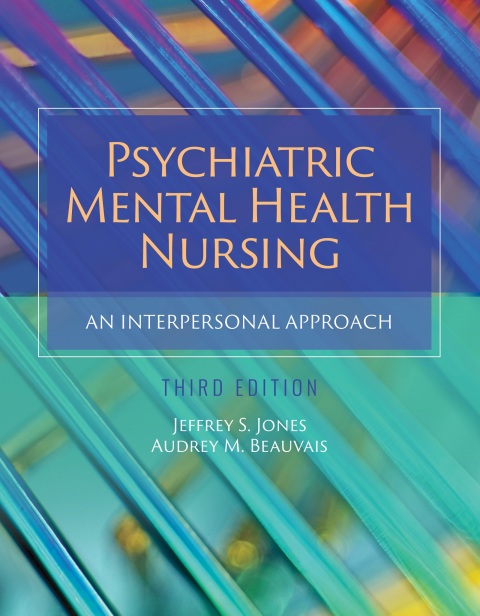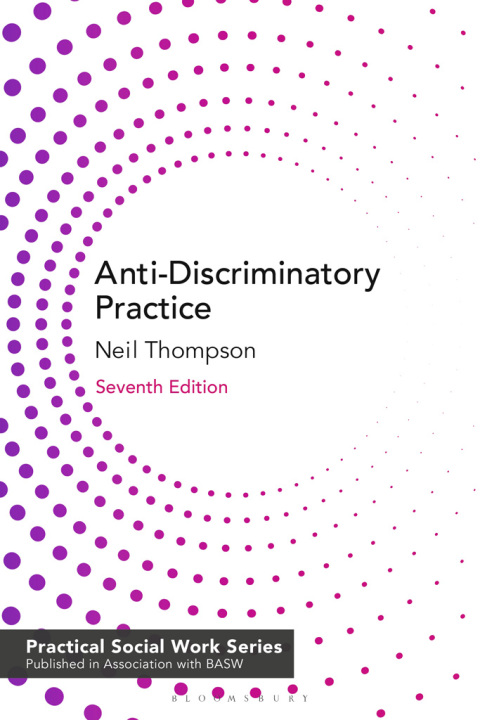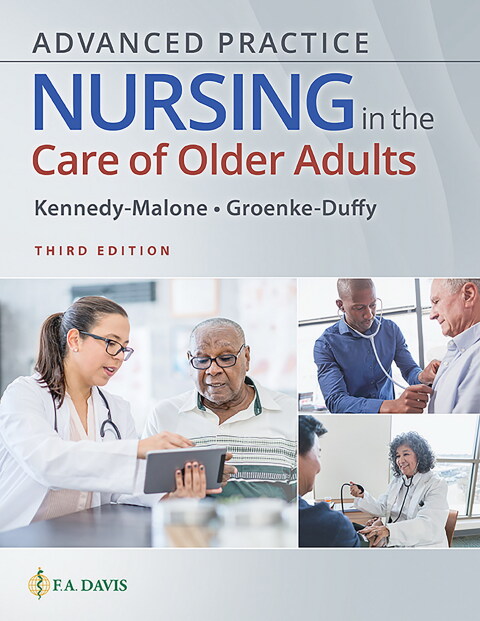Description
Efnisyfirlit
- Cover
- Title Page
- Copyright
- Dedication
- Brief Contents
- Contents
- Foreword
- About the Authors
- Contributors
- Introduction
- Chapter 1 Mental Health Trends and the Historical Role of the Psychiatric-Mental Health Nurse
- Historical Overview of Mental Health and Mental Illness Care
- The Earliest Years
- The Eighteenth and Nineteenth Centuries
- The Twentieth Century
- Governmental Involvement and Legislation
- Current Perspectives
- Evolution of Psychiatric-Mental Health Nursing
- Early Emergence of the Profession
- Continued Evolution
- Contemporary Psychiatric-Mental Health Nursing Practice
- Scope and Standards of Practice
- Phenomena of Concern
- Levels of Psychiatric-Mental Health Nursing Practice
- Roles and Functions of the PMHN
- Summary Points
- NCLEX-Prep
- References
- Chapter 2 Interpersonal Relationships: The Cornerstone of Psychiatric Nursing
- Hildegard E. Peplau
- Biographical Background
- Peplau’s Theory of Interpersonal Relationships
- Phases of the Interpersonal Process
- Orientation
- Identification
- Exploitation
- Resolution
- Roles
- Application to Psychiatric-Mental Health Nursing Practice
- Application to the Nursing Process
- Use of Peplau’s Theory in Practice
- Joyce Travelbee
- Biographical Background
- Travelbee’s Human to Human Relationship Theory
- Major Concepts
- Phases and the Nurse-Patient Relationship
- Application to Psychiatric-Mental Health Nursing Practice
- Application to the Nursing Process
- Use of Travelbee’s Theory in Practice
- Summary Points
- NCLEX-Prep
- References
- Chapter 3 Therapeutic Communication and the Therapeutic Use of Self
- Self
- Therapeutic Use of Self
- Self-Awareness
- Empathy
- Therapeutic Communication
- Factors That Influence Communication
- Verbal and Nonverbal Communication
- Verbal Communication
- Nonverbal Communication
- Use of Physical Space
- Use of Touch
- Interaction of Verbal and Nonverbal
- Communication Skills for Nurses
- Active Listening and Observation
- Therapeutic Communication Techniques
- Silence
- Self-Disclosure
- Nontherapeutic Communication Techniques
- Therapeutic Communication Within Challenging Nursing Situations
- Process Recordings
- Trauma-Informed Care
- Summary Points
- NCLEX-Prep
- References
- Chapter 4 Boundary Management
- Boundaries
- Establishment of Professional Boundaries
- Boundaries Within the Nurse-Patient Relationship
- Boundary Issues
- Boundary Testing
- Boundary Crossing Versus Boundary Violation
- Boundary Crossing
- Boundary Violation
- Risk Factors for Unhealthy Nurse-Patient Boundaries
- Strategies for Maintaining Boundaries
- Quality and Safety Education for Nurses (QSEN)
- Summary Points
- NCLEX-Prep
- References
- Chapter 5 Critical Thinking, Clinical Judgment, and Clinical Decision Making Within the Interpersonal Relationship
- Critical Thinking and Clinical Decision Making
- Domains of Critical Thinking
- Elements Necessary for Critical Thinking
- Framework for Critical Thinking and Clinical Decision Making
- Clinical Judgment
- Weaving This All Together in Practice
- The Nursing Process
- The Nursing Process and the Interpersonal Relationship
- Assessment
- Planning and Implementation
- Evaluation
- Implications for Psychiatric-Mental Health Nursing
- Summary Points
- NCLEX-Prep
- References
- Chapter 6 Crisis and Crisis Intervention
- Stress Response
- General Adaptation Syndrome
- Alarm Stage
- Resistance and Recovery Stage
- Exhaustion Stage
- Crisis
- Characteristics of a Crisis
- Factors Impacting an Individual’s Response to Crisis
- Development of Crisis
- Phase One
- Phase Two
- Phase Three
- Phase Four
- Classification of Crises
- Maturational Crisis
- Situational Crisis
- Social Crisis
- Crisis Intervention
- Nurses and Crisis Intervention: Historical Perspectives
- Interdisciplinary Response to Crisis
- Nurses and Crisis Intervention: Current Perspectives
- Crisis Intervention and the Nursing Process
- Nurse’s Role During and After Community and Global Disasters
- Impact of Dealing With Crises on Psychiatric-Mental Health Nurses
- Summary Points
- NCLEX-Prep
- References
- Chapter 7 Psychiatric Case Management
- Definition of Case Management
- Historical Evolution of Psychiatric Case Management
- Case Management Models
- Inpatient Model
- Continuum of Care Model
- Broker Case Management Model
- Clinical Case Management
- Case Management Process
- Goals and Principles of Case Management
- Necessary Skills for Case Management
- Critical Thinking
- Communication
- Negotiation
- Collaboration
- Essential Functions of the Case Management Process
- Assessment
- Planning
- Implementation
- Coordination
- Monitoring
- Evaluation
- Interpersonal Perspectives for Case Management
- Roles of the Psychiatric-Mental Health Nurse Coordinator of Care
- Advocate
- Consultant
- Educator
- Liaison
- Facilitator
- Mentor
- Researcher
- Practice Guidelines
- Admission and Assignment to Case Management Services
- Transition Between Levels and Discharge From Case Management
- Measurement of Quality in Case Management
- Summary Points
- NCLEX-Prep
- References
- Chapter 8 Known Risk Factors for Prevalent Mental Illness and Nursing Interventions for Prevention
- The Nature of Risk Factors
- Categories of Risk Factors
- Protective Factors
- The Stress-Vulnerability-Coping Model
- Adverse Childhood Experiences (ACE)
- Risk Factors for Major Psychiatric-Mental Health Disorders
- Disorders of Attention
- Psychotic Symptoms: Schizophrenia
- Disordered Mood
- Substance Misuse
- Anxiety
- The Interface of Psychiatric-Mental Health Disorders and Medical Conditions
- Factors Influencing Risk
- Medical and Psychiatric-Mental Health Disorders as Risk Factors
- The Interpersonal Process for Risk Reduction
- Primary Prevention
- Secondary Prevention
- Tertiary Prevention
- Summary Points
- NCLEX-Prep
- References
- Chapter 9 Systems Concepts and Working in Groups
- General Systems Theory
- Systems Theory and Nursing Theory
- Systems Theory and Psychiatric-Mental Health Nursing
- Groups and Group Therapy
- Types of Therapeutic Groups
- Group Process and Group Dynamics
- Curative Factors of Groups
- Instillation of Hope
- Universality
- Imparting of Information
- Altruism
- The Corrective Recapitulation of the Primary Family Group
- Development of Socialization Techniques
- Imitative Behavior
- Interpersonal Learning
- Group Cohesiveness
- Catharsis
- Existential Factors
- Group Development
- Role of the Group Leader or Facilitator
- Roles of Group Members
- Examples of Group Therapy
- Family Psychotherapy
- Models of Family Therapy
- Bowen Family Systems
- Genogram
- The Interpersonal Process and Group and Family Therapy
- Summary Points
- NCLEX-Prep
- References
- Chapter 10 Theories of Mental Health and Illness
- Mental Illness
- Evolution of Thinking About Mental Illness
- Nature Versus Nurture
- The Current State of Mental Illness
- Theories About Mental Illness
- Psychodynamic Theories
- Other Psychodynamic Theorists
- Behavioral Theories
- Ivan Pavlov
- Cognitive Theories
- Aaron Beck
- Albert Ellis
- Social Theories
- Humanistic Theories
- Carl Rogers
- Viktor Frankl
- Biopathophysiological Theories
- Summary Points
- NCLEX-Prep
- References
- Chapter 11 Psychopharmacology: An Objective Look at This Treatment Modality
- A Brief Review of the History of Mental Health Treatments and Interventions Prior to Psychopharmacology
- The Transition to Medication
- Chlorpromazine (Thorazine)
- The Era of Big Pharma
- First-Generation Versus Second-Generation Antipsychotics
- The Antidepressant Movement
- In Theory, How Do Psychotropic Medications Work?
- Reasons Patients Do Not Take Their Medications as Prescribed
- Role of the Nurse
- Ethical and Legal Implications
- Nurse-Patient Relationship and Medication Administration
- Assessment
- Client Education
- Informed Consent
- Medication Administration
- Evaluation
- Summary Points
- NCLEX-Prep
- References
- Chapter 12 Schizophrenia Spectrum and Other Thought Disorders
- Historical Perspectives
- Epidemiology
- Incidence
- Prevalence
- Mortality
- Remission/Recovery
- Diagnostic Criteria
- Schizophrenia
- Schizophreniform Disorder
- Schizoaffective Disorder
- Delusional Disorder
- Brief Psychotic Disorder
- Etiology
- Psychosocial Theories
- Biological Theories
- Genetics
- Neuroanatomic Factors
- Neurochemical Factors
- Treatment Options
- Pharmacologic Therapy
- Electroconvulsive Therapy
- Psychological Therapies
- Cognitive Behavioral Therapy
- Mindfulness
- Acceptance and Commitment Therapy
- The Phenomenon of the Hearing Voices Movement
- Cognitive Remediation or Rehabilitation Therapy
- Assertive Community Treatment
- Social Therapies
- Family Psychoeducation
- Integrated Dual Diagnosis Treatment
- Social Skills Training
- Supported Employment
- Illness Self-Management Training
- Supported Housing
- Self-Help or Peer Assistance
- Applying the Nursing Process From an Interpersonal Perspective
- Strategies for Optimal Assessment: Therapeutic Use of Self
- Self-Awareness
- Patient-Centered Care and QSEN Concepts: Rapport
- Environmental Management
- Health History and Examination
- Diagnosing and Planning Appropriate Interventions: Meeting the Patient’s Focused Needs
- Implementing Effective Interventions: Timing and Pacing
- Evaluation: Objective Critique of Interventions and Self-Reflection
- Summary Points
- NCLEX-Prep
- References
- Chapter 13 Mood Disorders
- Historical Perspectives
- Epidemiology
- Diagnostic Criteria
- Major Depressive Disorder
- Persistent Depressive Disorder (Dysthymia)
- Bipolar I Disorder
- Bipolar II Disorder
- Cyclothymic Disorder
- Suicide
- Etiology
- Psychosocial Theories
- Biological Theories
- Neurobiologic Influences
- Genetics
- Treatment Options
- Psychopharmacology
- Treatment of the Depressive Disorders
- Treatment of the Bipolar Disorders
- Electroconvulsive Therapy
- Cognitive Behavioral Therapy
- Applying the Nursing Process From an Interpersonal Perspective
- Strategies for Optimal Assessment: Therapeutic Use of Self
- Diagnosing and Planning Appropriate Interventions: Meeting the Patient’s Focused Needs
- Implementing Effective Interventions: Timing and Pacing
- Evaluating: Objective Critique of Interventions and Self-Reflection
- QSEN Aspects
- Summary Points
- NCLEX-Prep
- References
- Chapter 14 Anxiety, Obsessive-Compulsive–Related, and Trauma- and Stress-Related Disorders
- Historical Perspectives
- Epidemiology
- Morbidity and Mortality
- Diagnostic Criteria
- Anxiety Disorders
- Specific Phobias
- Social Anxiety Disorder (Social Phobia)
- Panic Disorder
- Agoraphobia
- Generalized Anxiety Disorder
- Substance/Medication-Induced Anxiety Disorder
- Anxiety Disorder Due to Other Medical Condition
- Obsessive-Compulsive Disorders
- Obsessive-Compulsive Disorder
- Hoarding Disorder
- Body Dysmorphic Disorder
- Trichotillomania (Hair-Pulling Disorder)
- Excoriation (Skin-Picking) Disorder
- Substance/Medication-Induced Obsessive-Compulsive and Related Disorder
- Obsessive-Compulsive and Related Disorder Due to Another Medical Condition
- Other Specified Obsessive-Compulsive and Related Disorder
- Trauma- and Stress-Related Disorders
- Posttraumatic Stress Disorder
- Acute Stress Disorder
- Adjustment Disorders
- Etiology
- Psychosocial Theories
- Psychodynamic Influences
- Behavioral Influences
- Biological Theories
- Neurobiologic Influences of Anxiety Disorders
- Neurobiologic Influences of Obsessive-Compulsive Disorders
- Neurobiologic Influences of Trauma- and Stress-Related Disorders
- Genetic Vulnerability
- Treatment Options
- Pharmacologic Therapy
- Generalized Anxiety Disorder
- Panic Disorders
- Obsessive-Compulsive Disorder
- Body Dysmorphic Disorder
- Hoarding Disorder
- Posttraumatic Stress Disorder
- Social Phobia
- Preemptive or Prophylactic Treatments
- Herbal Preparations
- Individual Psychotherapy
- Cognitive Behavioral Therapy
- Cognitive Restructuring
- Exposure Therapies
- Eye Movement Desensitization and Reprocessing
- Biofeedback
- Functional Neurosurgery
- Therapeutic Neurostimulation
- Informational Interventions
- Self-Monitoring and Symptom Diary
- Abdominal Breathing
- Progressive Muscle Relaxation
- Exercise
- Guided Imagery
- Music
- Mindfulness-Based Interventions
- Acceptance and Commitment Therapy
- Dietary Changes
- Applying the Nursing Process From an Interpersonal Perspective
- Strategies for Optimal Assessment: Therapeutic Use of Self
- Self-Assessment
- Environmental Considerations
- Baseline Assessment
- Planning Appropriate Interventions: Meeting the Patient’s Focused Needs
- Implementing Effective Interventions: Timing and Pacing
- Evaluating: Objective Critique of Interventions and Self-Reflection
- Summary Points
- NCLEX-Prep
- References
- Chapter 15 Personality Disorders
- Historical Perspectives
- Epidemiology
- Diagnostic Criteria
- Cluster A
- Paranoid Personality Disorder
- Schizoid Personality Disorder
- Schizotypal Personality Disorder
- Cluster B
- Antisocial Personality Disorder
- Borderline Personality Disorder
- Histrionic Personality Disorder
- Narcissistic Personality Disorder
- Cluster C
- Avoidant Personality Disorder
- Dependent Personality Disorder
- Obsessive-Compulsive Personality Disorder
- Other Personality Disorders
- Malingering
- Etiology
- Psychodynamic Theories
- Environmental Factors
- Developmental Pathways
- Psychological Processes
- Biologic Theories
- Treatment Options
- Psychotherapy
- Cognitive Behavioral Therapy
- Dialectical Behavior Therapy
- Psychopharmacology
- Applying the Nursing Process From an Interpersonal Perspective
- Strategies for Optimal Assessment: Therapeutic Use of Self and Self-Awareness
- Environmental Management
- Health History and Examination
- Diagnosing and Planning Appropriate Interventions: Meeting the Patient’s Focused Needs
- Implementing Effective Interventions: Timing and Pacing
- Interventions for Cluster A Personality Disorders
- Interventions for Cluster B Personality Disorders
- Interventions for Cluster C Personality Disorders
- Evaluating: Objective Critique of Interventions and Self-Reflection
- Summary Points
- NCLEX-Prep
- References
- Chapter 16 Substance-Related and Use Disorders
- Historical Perspectives
- Epidemiology
- Diagnostic Criteria
- Etiology
- Factors Related to Substance Use and Addictive Disorders and Substance Abuse
- Psychological Factors
- Environmental Factors
- Shared Experiences
- Neurobiologic Influences
- Current Trends: Prescription Drug Epidemic
- Emerging Trends: New Psychoactive Substances/Synthetics
- Treatment Options
- 12-Step Programs
- Psychopharmacology
- Psychotherapy
- Detoxification and Rehabilitation
- Applying the Nursing Process From an Interpersonal Perspective
- Quality and Safety Education for Nurses (QSEN)
- Patient-Centered Care
- Teamwork and Collaboration
- Evidence-Based Practice
- Substance Use and Addictive Disorders
- Strategies for Optimal Assessment: Therapeutic Use of Self
- Self-Awareness
- Screening
- Physical Examination
- Diagnosing and Planning Appropriate Interventions: Meeting the Patient’s Focused Needs
- Implementing Effective Interventions: Timing and Pacing
- Evaluating: Objective Critique of Interventions and Self-Reflection
- Summary Points
- NCLEX-Prep
- References
- Chapter 17 Neurocognitive Disorders
- Historical Perspectives
- Epidemiology
- Diagnostic Criteria
- Delirium
- Neurocognitive Disorders
- Neurocognitive Disorder Due to Alzheimer’s Disease (AD)
- Neurocognitive Disorder With Lewy Bodies
- Vascular Neurocognitive Disorder
- Frontotemporal Neurocognitive Disorder
- Etiology
- Treatment Options
- Psychopharmacology
- Cholinesterase Inhibitors
- Antioxidants
- Hormone Replacement Therapy
- Nonsteroidal Anti-Inflammatory Drugs (NSAIDs)
- Lipid-Lowering Agents
- Other Agents
- Herbal Remedies
- Reality Orientation
- Validation Therapy
- Reminiscence Therapy
- Person-Centered Care
- Kitwood’s Enriched Model of Dementia
- The Progressively Lowered Stress Threshold Model
- Applying the Nursing Process From an Interpersonal Perspective
- Strategies for Optimal Assessment: Therapeutic Use of Self
- Self-Awareness
- Environmental Management
- Data Collection
- Diagnosing and Planning Appropriate Interventions: Meeting the Patient’s Focused Needs
- Implementing Effective Interventions: Timing and Pacing
- Safety Issues
- Environmental Management
- Medication Management
- Caregiver Stress
- Evaluating: Objective Critique of Interventions and Self-Reflection
- Quality and Safety Education for Nurses (QSEN)
- Summary Points
- NCLEX-Prep
- References
- Chapter 18 Disruptive Impulse Control and Conduct Disorders
- Historical Perspectives
- Epidemiology
- Diagnostic Criteria
- Etiology
- Psychodynamic Influences
- Neurobiologic Influences
- Treatment Options
- Nonpharmacologic Therapies
- Pharmacologic Therapies
- Applying the Nursing Process From an Interpersonal Perspective
- Strategies for Optimal Assessment: Therapeutic Use of Self
- Self-Awareness
- Quality and Safety Education for Nurses (QSEN)
- Data Collection
- Diagnosing and Planning Appropriate Interventions: Meeting the Patient’s Focused Needs
- Implementing Effective Interventions: Timing and Pacing
- Evaluating: Objective Critique of Interventions and Self-Reflection
- Summary Points
- NCLEX-Prep
- References
- Chapter 19 Sexual Dysfunctions, Paraphilic Disorders, and Gender Dysphoria
- Historical Perspectives
- Epidemiology
- Diagnostic Criteria
- Delayed Ejaculation
- Erectile Disorder
- Female Orgasmic Disorder
- Female Sexual Interest/Arousal Disorder
- Genito-Pelvic Pain/Penetration Disorder
- Male Hypoactive Sexual Desire Disorder
- Premature Ejaculation
- Substance-Induced Sexual Disorder
- Paraphilic Disorders
- Voyeuristic Disorder
- Exhibitionistic Disorder
- Frotteuristic Disorder
- Sexual Masochism Disorder
- Sexual Sadism Disorder
- Pedophilic Disorder
- Fetishistic Disorder
- Transvestic Disorder
- Specified Paraphilic Disorder
- Gender Dysphoria
- Etiology
- Psychodynamic Influences
- Neurobiological Influences
- Treatment Options
- Therapy
- Pharmacologic
- Applying the Nursing Process From an Interpersonal Perspective
- Strategies for Optimal Assessment: Therapeutic Use of Self
- Sexual Health Assessment
- Boundary Maintenance
- Diagnosing and Planning Appropriate Interventions: Meeting the Patient’s Focused Needs
- Quality and Safety Education for Nurses (QSEN)
- Implementing Effective Interventions: Timing and Pacing
- Evaluating: Objective Critique of Interventions and Self-Reflection
- Summary Points
- NCLEX-Prep
- References
- Chapter 20 Feeding and Eating Disorders
- Historical Perspectives
- Epidemiology
- Diagnostic Criteria
- Pica
- Rumination Disorder
- Avoidant/Restrictive Food Intake Disorder
- Anorexia Nervosa
- Bulimia Nervosa
- Binge Eating Disorder
- Emerging Areas of Disordered Eating
- Etiology
- Biologic Factors
- Sociocultural Factors
- Familial Factors
- Psychological and Individual Factors
- Treatment Options
- Screening for Eating Disorders
- Applying the Nursing Process From an Interpersonal Perspective
- Developing the Nurse-Patient Relationship: Therapeutic Use of Self
- Assessing Physical Status
- Assessing Safety
- Assessing Psychosociocultural Status
- Diagnosing and Planning Appropriate Interventions: Meeting the Patient’s Focused Needs
- Implementing Effective Interventions
- Quality and Safety Education for Nurses (QSEN)
- Evaluating: Objective Critique of Interventions and Self-Reflection
- Summary Points
- NCLEX-Prep
- References
- Chapter 21 Psychological Problems of Physically Ill Persons
- Suffering and the Therapeutic Use of Self
- Theoretical Views of Suffering
- Suffering and Its Impact on Nurses
- Special Issues Related to Mental Health and Physical Illness
- Impact of Stress
- Adverse Childhood Events and Stress
- Mind-Body Interactions and Stress
- The Role of Nursing in the Provision of Integrative Care
- Loss and Grief
- Body Image Changes and Stigma
- Pain and Other Physical Symptoms
- Anxiety and Depression
- Delirium
- The Nurse’s Role in Breaking Bad News
- End-of-Life Care and Courageous Conversations
- Conversations About Death and Dying
- Conversations About Code Status
- Conversations Involving a Shift From Cure-Driven Care to Palliative Care
- Conversations About Hospice Care
- The Role of the Mental Health Liaison/Consultation Nurse
- Applying the Nursing Process From an Interpersonal Perspective
- Strategies for Optimal Assessment: Therapeutic Use of Self
- Diagnosing and Planning Appropriate Interventions: Meeting the Patient’s Focused Needs
- Implementing Effective Interventions: Timing and Pacing
- Evaluating: Objective Critique of Interventions and Self-Reflection
- Summary Points
- NCLEX-Prep
- References
- Chapter 22 Working With Children and Concerns Regarding Adolescents
- Growth and Development Theories
- Piaget’s Theory of Cognitive Development
- Erikson’s Theory of Emotional and Personality Development
- Freud’s Theory of Psychological Development
- Sullivan’s Theory of Interpersonal and Personality Development
- Behavioral Theories of Pavlov and Skinner
- Overview of Disorders of Childhood and Adolescents
- Autism Spectrum Disorders
- Attention Deficit-Hyperactivity Disorder
- Disruptive, Impulse-Control, and Conduct Disorders
- Conduct Disorder
- Oppositional Defiant Disorder
- Intermittent Explosive Disorder
- Mood Disorders
- Depression
- Mania
- Self-Harm
- Suicide
- Posttraumatic Stress Disorder
- Obsessive-Compulsive Disorder
- Social Phobia
- Feeding and Eating Disorders
- Pica
- Rumination Disorder
- Avoidant/Restrictive Food Intake Disorder
- Eating Disorders: Anorexia Nervous and Bulimia
- Substance Misuse and Abuse
- Treatment Options
- Play Therapy
- Behavioral Therapy
- Cognitive Behavioral Therapy
- Family Therapy
- Psychopharmacology
- Group Work
- Inpatient Care
- Applying the Nursing Process From an Interpersonal Perspective
- Strategies for Optimal Assessment: Therapeutic Use of Self
- Diagnosing and Planning Appropriate Interventions: Meeting the Adolescent’s Focused Needs
- Implementing Effective Interventions: Timing and Pacing
- Evaluating: Objective Critique of Interventions and Self-Reflection
- Quality and Safety Education for Nurses
- Summary Points
- NCLEX-Prep
- References
- Chapter 23 Issues Specific to the Elderly
- Overview of the Elderly Population
- Quality of Life
- Active Aging
- Medicare
- Factors Influencing Mental Health in the Aging Population
- Loneliness
- Factors That May Influence the Development of Loneliness
- Loss
- Family Coping
- Stress and Change
- Abuse and Neglect
- Protentional Risks for Untreated Loneliness in the Elderly
- Depression and Suicide
- Elder Suicide
- Generalized Anxiety Disorder in the Elderly
- Insomnia
- Physical Changes That Also Impact Mental Health
- Chronic Illness
- Pain
- Disabilities and Functional Decline
- Culture and Spirituality
- Substance Use/Abuse and Polypharmacy in the Elderly
- Palliative and End-of-Life Issues With Mentally Impaired Elders
- Trends in Mental Health Care for the Elderly
- Acute Care
- Outpatient Services
- Personal Belief and Desire for Mental Health Care Services
- Ability to Meet the Costs of Services
- Physical Access to Mental Health Services
- Programs to Meet the Needs of the Elder Population
- Applying the Nursing Process From an Interpersonal Perspective
- Strategies for Optimal Assessment: The Therapeutic Use of Self
- Diagnosing and Planning Appropriate Interventions: Meeting the Patient’s Focused Needs
- Implementing Effective Interventions: Timing and Pacing
- Evaluating: Objective Critique of Interventions and Self-Reflection
- QSEN Competencies
- Summary Points
- NCLEX-Prep
- References
- Chapter 24 Victims and Victimizers
- Types of Abuse
- Physical Abuse
- Sexual Abuse
- Emotional or Psychological Abuse
- Economic Abuse
- Historical Perspectives
- Epidemiology
- Child Abuse
- Intimate Partner Violence
- Elder Abuse
- Etiology
- Child Abuse
- Intimate Partner Violence
- Elder Abuse
- Patterns of Violence
- The Cycle of Violence
- Cycle of Abuse
- The Power and Control Wheel
- Nursing Responsibilities From an Interpersonal Perspective
- Child Abuse
- Intimate Partner Violence
- Elder Abuse
- Quality and Safety Education for Nurses
- Summary Points
- NCLEX-Prep
- References
- Chapter 25 Psychiatric-Mental Health Nursing Across the Continuum of Care
- Psychiatric-Mental Health Nursing Across the Continuum of Care
- Goal of the Least-Restrictive Environment
- Consultation-Liaison Services
- Levels of Care
- Psychiatric Emergency Care
- Acute Inpatient Care
- Intermediate/Long-Term Inpatient Care
- Partial Hospitalization/Day Treatment
- Residential Services
- Community-Based Care
- Psychiatric Rehabilitation Programs
- Assertive Community Treatment
- Clubhouse Model
- Respite Care
- Nursing Homes
- Outpatient Care
- Home Care
- Primary Care
- Housing Services
- Personal Care Homes
- Supervised Apartments
- Therapeutic Foster Care
- Board and Care/Room and Board Homes
- Halfway House/Sober House
- The Continuum of Ambulatory Behavioral Health Services
- Specialized Roles of PMHNs Within the Continuum of Care
- Self-Employment
- Telehealth
- Case Management
- Disaster Response
- Forensic Nursing
- Summary Points
- NCLEX-Prep
- References
- Chapter 26 Caring for Vulnerable Populations and the Role of the Forensic Nurse
- Working With Children and Adolescents
- Aging Individuals and the Nurse’s Role in Working With the Elderly
- The Nurse’s Role Interacting With Diverse Racial and Ethnic Groups
- Nursing and Caring for Individuals With Intellectual Disabilities
- Nursing’s Responsibility to Individuals Experiencing Homelessness
- Impact on Mental Health
- Caring for Individuals Who Are Incarcerated
- Forensic Nursing
- Educational Preparation
- Summary Points
- NCLEX-Prep
- References
- Chapter 27 Cultural, Ethnic, and Spiritual Concepts
- Core Concepts Associated With Culture
- Historical Perspectives: Culture and Ethnicity
- Assessment Framework and Nursing Theory
- Communication
- Space
- Time
- Social Organizations
- Environmental Control
- Biologic Variations
- Race, Ethnicity, and Culture
- White
- Black or African American
- American Indian or Alaska Native
- Asian American
- Native Hawaiian or Other Pacific Islander
- Hispanic and Latino
- Cultural Barriers to Mental Health and Services
- Stigma
- Language
- Immigration
- Socioeconomic Circumstances
- Quality and Safety Education for Nurses
- Spirituality, Religion, and Mental Health
- Historical Perspectives: Spiritual and Religious
- Nursing Theory and Assessment
- Influence on Coping
- Influence on the Etiology of Mental Illness
- Influence on Mental Illness Symptomatology
- Application of the Nursing Process Following Assessment
- Cultural Diagnosis/Outcome Identification
- Spiritual Diagnosis/Outcome Identification
- Planning/Implementation
- Evaluation of Nursing Process and Self-Reflection by Nurse
- Role of Nurse in Providing Cultural and Spiritual Care
- Summary Points
- NCLEX-Prep
- References
- Chapter 28 Ethical and Legal Principles
- Ethics
- Ethical Theories and Principles
- Model for Ethical Decision Making
- Orientation/Assessment Phase
- Identification Phase/Nursing Diagnoses and Planning
- Exploitation Phase/Implementation
- Resolution Phase/Evaluation
- Legal Issues
- Standards for Legal Psychiatric Nursing Practice
- Bill of Rights for Mental Health Patients
- Voluntary and Involuntary Admission
- Competency
- Informed Consent
- Elements of Informed Consent
- Capacity Assessments and Determinations
- The Nurse’s Role in Informed Consent
- Least Restrictive Environment
- Restraints and Seclusion
- Nursing Responsibilities
- Confidentiality
- Legal Liability
- Summary Points
- NCLEX-Prep
- References
- Appendix
- Glossary
- Index







Reviews
There are no reviews yet.